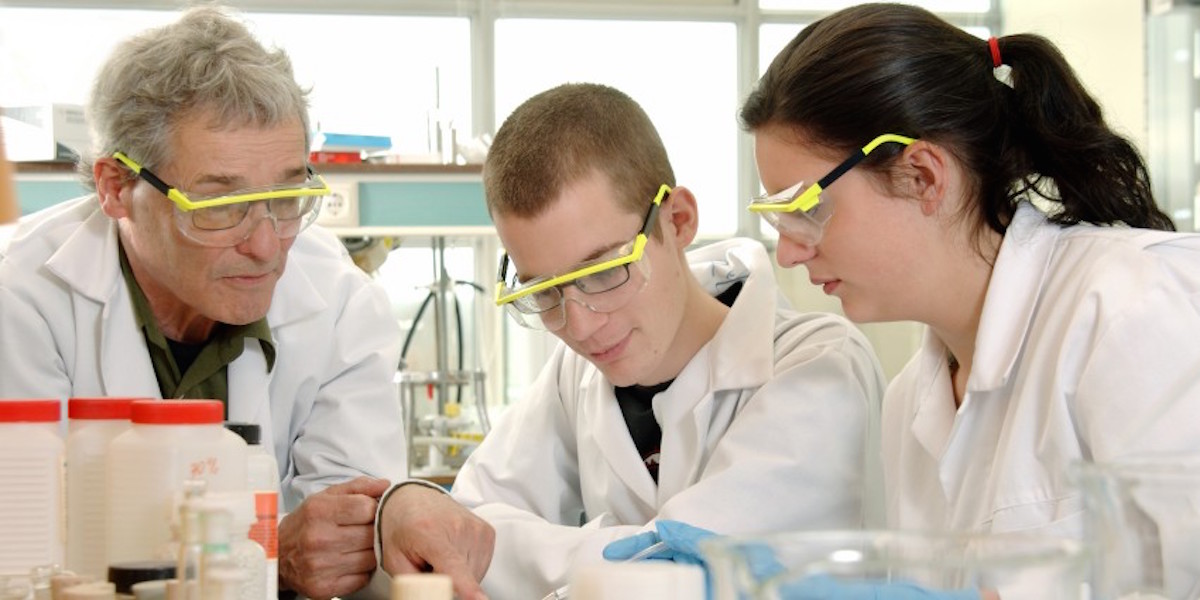Improve undergraduate STEM education now, urge Cottrell Scholars and AAU in Nature article

An increasingly competitive global economy as well as growing challenges in sustainability require the best possible teaching of science, technology, engineering and mathematics (STEM) classes at American universities. Unfortunately, undergraduate students are not being taught these subjects as well as they can be.
That’s the conclusion of representatives of the Association of American Universities (AAU) and the Cottrell Scholar program of Research Corporation for Science Advancement (RCSA) in a Comment article in this week’s Nature.
Stephen E. Bradforth, Emily R. Miller, and their co-authors write that the time is ripe for change, given academia’s improving skills in collecting, analyzing, and assessing individual and institutional data on teaching effectiveness and student outcomes.
“It is no longer acceptable to blame primary- and secondary-school teachers for the deficits in STEM learning at the university level,” they argue.
Their article briefly outlines examples of best-in-class pedagogical programs and practices, pointing out that active learning interventions have been shown to improve achievement for all students, particularly those with disadvantaged and ethnic minority backgrounds. Many of the examples are drawn from work being supported by AAU’s Undergraduate STEM Education Initiative, which has been supported by The Leona M. and Harry B. Helmsley Charitable Trust and the National Science Foundation.
“No single tool will work for all universities,” the authors note, “but every university now has at its disposal the tools to improve undergraduate STEM teaching, and no defensible reason for not using them.”
As a first step, the authors insist, universities and their colleges and departments “must expect and enable faculty members to be scholarly about teaching. And they must assess, recognize and reward those who are.”
Miller is director of AAU’s Undergraduate STEM Education Initiative. Bradforth, a Cottrell Scholar, is chair and professor in the Department of Chemistry, University of Southern California, Los Angeles. The other authors are Cottrell Scholars William R. Dichtel, Cornell University; Adam K. Leibovich, University of Pittsburg; Andrew L. Feig, Wayne State University; James D. Martin, North Carolina State University; Karen S. Bjorkman, University of Toledo; and Zachary D. Schultz, University of Notre Dame; as well as Tobin L. Smith, vice-president for policy at AAU.
The Nature article builds on a joint project between the AAU and RCSA’s Cottrell Scholars Collaborative on the “Effective Evaluation of Teaching and Learning.” As a part of this project, a workshop was held in January 2014. A report released last week by RCSA and AAU, “Searching for Better Approaches: Effective Evaluation of Teaching and Learning in STEM,” provides a summary of the results of the workshop, along with invited papers and reflections from workshop speakers and participants.
For more information, please contact:
Barry Toiv (Association of American Universities, Washington, D.C.)
Email: barry.toiv@aau.edu
Dan Huff (Research Corporation for Science Advancement, Tucson, AZ)
Email: dhuff@rescorp.org






